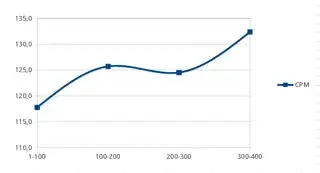I think the answer to this question is going to depend on a lot of different factors, and I think there is no single, well-defined answer.
The improvement in reading speed which comes with experience is heavily subject to diminishing returns. I.e. at first, you will notice a marked improvement in speed, but over time (such as when reading your second or third novel in a language, or even reading the second half of your first novel vs. reading the first) your gains will be more modest.
It's also important to note that reading speed is not a one-dimensional variable. You'll be faster reading stuff written at a more basic level, and you'll also be faster reading a subject that you are interested in and/or knowledgeable about. Reading a contemporary novel written with more standardized, accessible language will be easier than reading a historical novel far enough back in time that the language has changed, and similarly, it will be harder than reading a contemporary novel that makes heavy use of specialized slang that you are unfamiliar with. And lastly, some authors are harder to read than others, even by native speakers.
Also, language learning (and any improvements in reading skill and speed) is a highly personal process that is going to vary considerably from one person to the next. For example, I can pick up a field guide on plants or birds in German or Spanish and read it, even with the specialized terminology, because my brain fills in so much context from my familiarity with such books in English, but I'm lost when reading about sports, because I am both less knowledgeable about it and less interested in it.
If you were to design an experiment on this, it would probably have limited scope and you would not be able to generalize much, in terms of specific quantities. I.e. it would be hard to generalize from one person to the next, and if you designed a larger experiment with a large sample of people and calculated averages, you'd still have to pick reading material and also somehow assess people's average language learning, and again, the results might not be terribly useful.
What I think is more useful is to ask yourself: what is your reading speed when reading material that you are motivated to read? And then pay attention to whether or not your reading speed improves with practice. You will probably notice that it does, and also that you experience diminishing returns.
There is also the question of efficiency at improving your reading ability, when reading one text vs. reading another, and this might be more important than the total improvement in speed when reading a particular text.
I have found that, for myself, there is a sweet spot with respect to reading, which is that I gain the most when I'm challenged enough that I see a lot of words I don't know and an occasional grammatical construct that I don't know, but the unknown parts are sparsely-distributed enough in the text that I can fill in most of them from context. This allows me to learn a lot without having to stop and look things up or puzzle too long at a particular sentence. If there are too many missing or unknown parts that I'm constantly looking up words or struggling to understand sentence after sentence, I'm probably not learning as fast as I could be. Yes, my reading speed may improve when I brute-force my way through a difficult text like this, but I have found that I actually learn faster overall when I instead choose texts that are more appropriate to my ability level.
